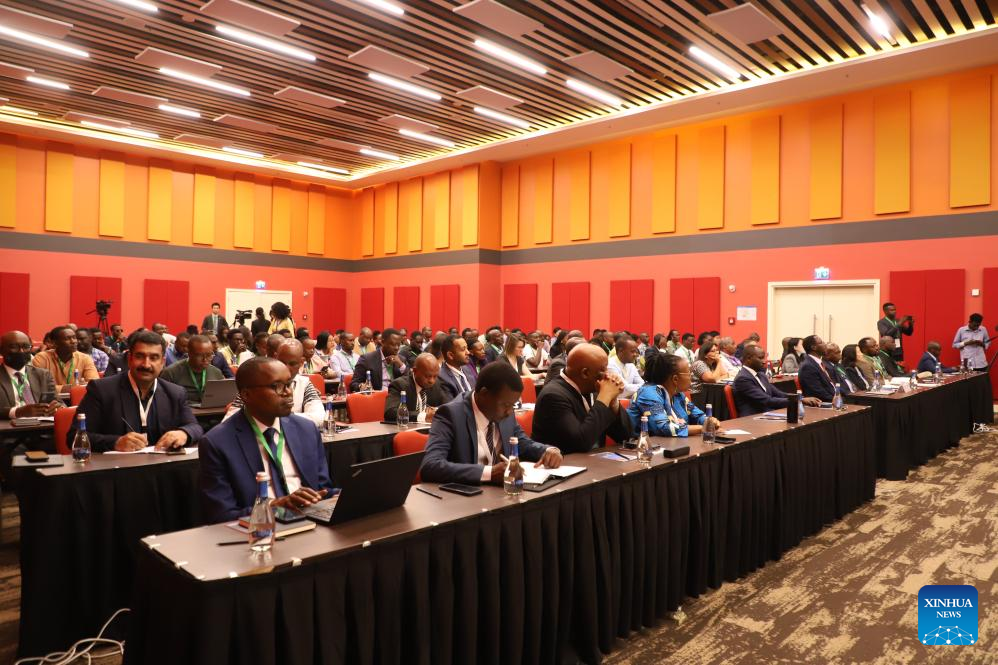
Participants attend a seminar on China-Africa agriculture development in Kigali, Rwanda, June 21, 2024. (Xinhua/Ji Li)
KIGALI, June 22 (Xinhua) -- A seminar on China-Africa agriculture development was held Friday in Rwanda, with participants emphasizing the need to strengthen the partnership with China for agricultural modernization aimed at addressing the challenge of low food production on the African continent.
The one-day event in Kigali, the capital of Rwanda, was organized by the Rwanda Institute of International Affairs (RIIA), in collaboration with the Chinese Embassy in Rwanda, themed "Practice and vision on China-Africa agricultural high-quality development: food security, improve added value and facilitate trade of agricultural products."
Speaking at the opening, Ildephonse Musafiri, Rwanda's minister of Agriculture and Animal Resources, said there is a need for more food not only in Rwanda but Africa. He talked of the need for healthy diets and a sustainable way of food production. He said partnerships with China can be an opportunity to address the challenge of low food production on the continent.
He also called on the Chinese to make more investments in Rwanda's agriculture, saying the sector remains open for investors across all the value chain.
The meeting discussed important strategies that can improve Africa's agricultural productivity, food security and trade.
Ma Youxiang, the Chinese vice minister of agriculture and rural affairs, said in a video message that food security and agricultural development have been priorities for both China and Africa and remain so under various collaboration deals.
Chinese Ambassador to Rwanda Wang Xuekun noted that developing agriculture is essential to people's lives and national growth. "Modernized agriculture is no longer something like subsistence farming. It requires efforts from all sectors of the society and integration of labor, capital, technology and industry chain," he said.
It needs coordinated national strategy and policy, innovative technology and scientific approach, extended value chain along with boosted investment and unimpeded trade, he added.
Wang decried the fact that many African countries with vast arable land still import food and a lot of people working in agriculture are still far from living a good life.
Africa remains a net importer of food despite having 60 percent of the world's uncultivated arable land, with the import bill worth about 35 billion U.S. dollars a year.
Experts believe most of the imported food could be produced locally, creating much-needed jobs and incomes for youth and smallholder farmers.
Ismael Buchanan, the chief executive officer and founder of the Rwanda Institute of International Affairs, said "working together and sharing best practices would help address the challenges in the agriculture sector and make sure the dream comes true." ■
